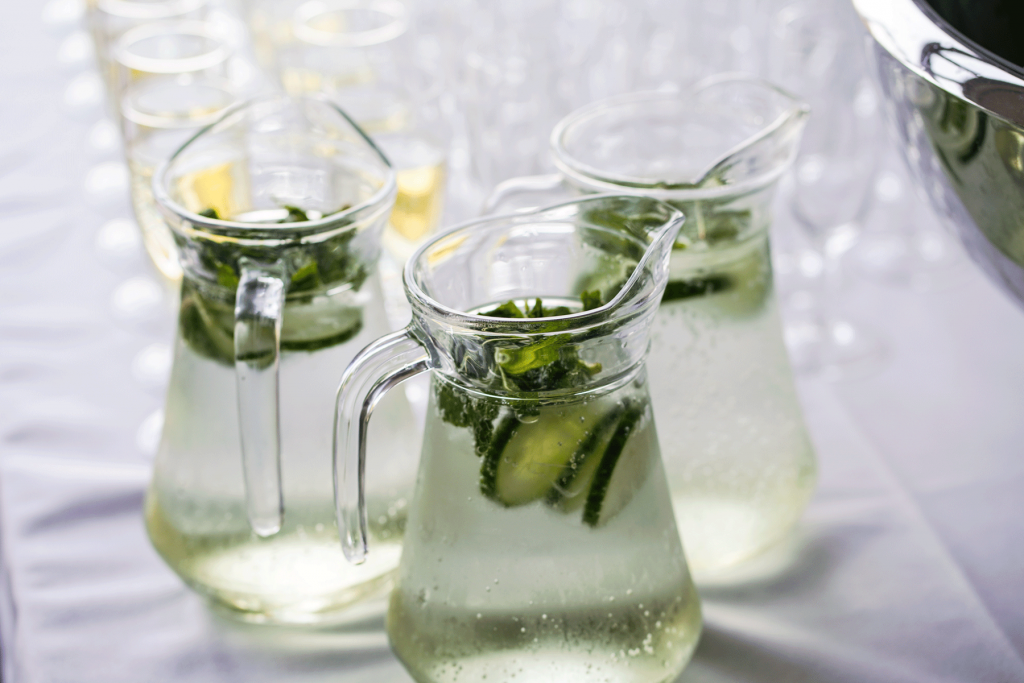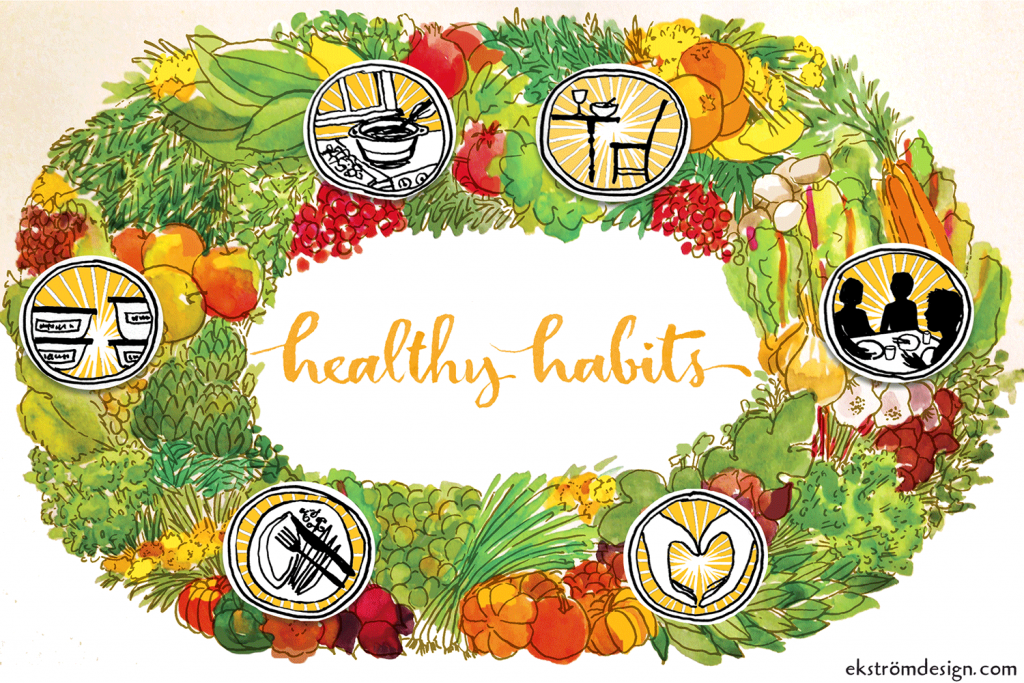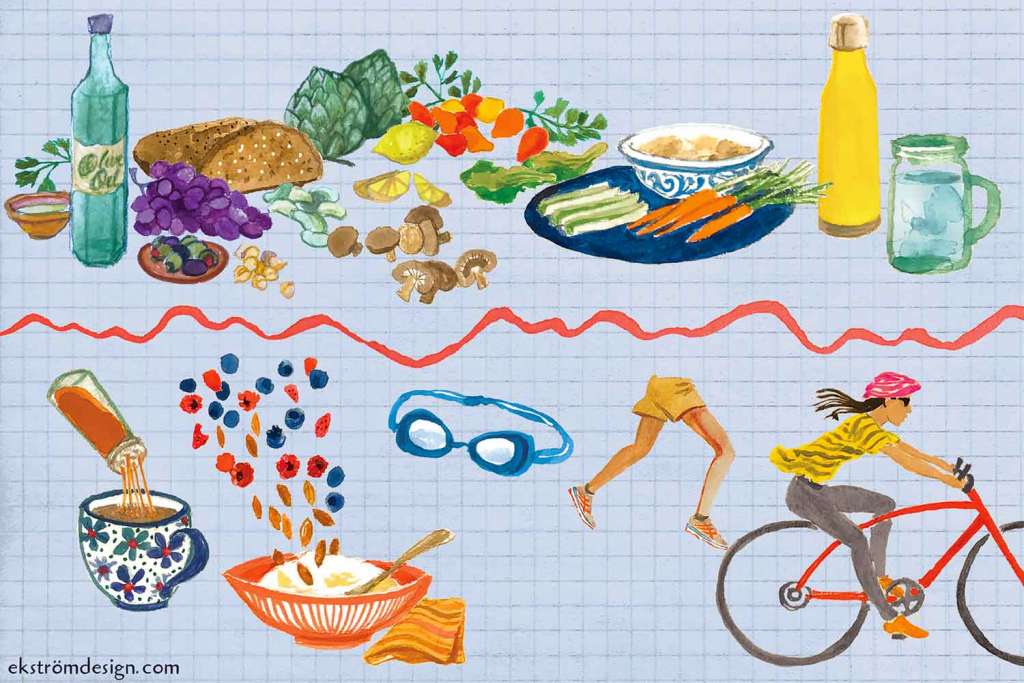Quench Your Thirst, It’s Good for Your Health

Beyond quenching your thirst on a hot day and rehydrating you after a sweaty workout, water is one of the single most important parts of maintaining a healthy lifestyle. Here, Dr. David Katz explains why staying hydrated helps our bodies inside and out.
How important is water to our health?
While we can survive for days and weeks—and sometimes even months—with no or very little food, serious effects of dehydration can set in over a matter of hours, and turn lethal in just days. When water levels in the body change, so, too, does the concentration of everything floating in our blood. The concentration of cells and clotting factors determines if blood flows freely, or plugs up blood vessels instead. Concentrations of sodium, potassium, calcium, and magnesium exert critical influences on cellular function, including muscle and nerve cells. Recall that the brain is made up of nerve cells, and the heart is made up of muscle cells and you start to see how shifts in hydration status readily become important to vital organs.
What functions does water serve?
Blood is mostly water, so it’s essential to everything the circulatory system does, such as delivering oxygen and nutrients that keep our cells alive. Every cell in the body has water to thank for its form, which in turn allows it to function. Water is the universal solvent, and that’s just how our kidneys use it: as a means of flushing out water-soluble toxins, of which there are many. While many of the claims about “detox regimens” are just gimmicks, an optimal daily supply of water is a genuine detox that allows the kidneys, as well as the liver, and the intestines, and all the other body parts, to work as they should.
Is there any scientific evidence linking water consumption to chronic disease or longevity?
There’s no such thing as severe long-term dehydration, because severe dehydration is lethal in the short term. Because the kidneys and intestines struggle to flush out toxins when water is limited, there’s potential for more toxic exposures to uncleared products of metabolism, and that could increase the risk of cancer, heart disease, and more. Less severe dehydration tends to be associated with reduced cognitive function and fatigue and can impair both physical and mental performance. Dehydration can also compromise kidney function over time, increasing the risk of kidney stones, and also constipation, which in the long term may, in turn, increase the risk of everything from diverticulosis to colon cancer.
How much water do you recommend we drink every day?
There is no one size fits all answer, for many reasons. First, how much we need to drink depends on how much water you’re using and losing, and that depends on ambient temperature, humidity, and whether you’re moving or at rest. Second, it varies fundamentally with diet. Among the many advantages of eating whole fruits and vegetables is their high water content, which means you can get some of the water you need by eating it, rather than drinking it. In contrast, processed foods tend to have very low or even no water content, and may be quite high in salt, which increases the need for water.
There are so many types of water on the market—alkaline, bottled, club soda, distilled, electrolyte, hydrogen, ionized, mineral, purified, seltzer, spring, tap, well. Do any of these do better or worse of keeping us hydrated?
Let’s just cut to the chase here: the advantages in the whole array of specialty waters go to those selling them, not those buying them. There is no evidence that any kind of specialty water offers any meaningful or important advantage over plain water. Carbonated water is acidic relative to plain water, and there is some concern, but not much evidence, that it can erode tooth enamel. The many claims for alkalinized water are marketing hype without science to back them up. As for purified, or distilled water, that certainly makes sense if there is concern about contaminants in the water supply. If the tap water is from a safe and reliable source, however, then those are unnecessary embellishments.
That being said, endurance training or exercising in the heat for extended periods of time can deplete your electrolytes. Electrolyte replenishment is key, and this is when electrolyte-enhanced water can indeed serve a purpose.
What about coconut water, is it better than water after a workout?
There’s no scientific evidence that coconut water outperforms plain water in any meaningful way. However, it is electrolyte-rich, so, if you’re working out hard, and sweating a lot, coconut water offers some theoretical (if not proven) advantages. I would recommend it over a sports drink since it often comes without added sugars, artificial flavors, and artificial colors (check the ingredient list). But more often than not, plain water is just as good.
Do you have any practical hydration hacks or tips to help people remember to drink more water during the day?
Ask your kidneys. They’re critically dependent on water and electrolyte concentrations in the blood and are monitoring this all the time. They adjust how much volume they filter out accordingly, so the frequency, volume, color, and composition of urine is a very, very good indicator of whether or not you’re getting enough water. During waking hours, you should need to pee roughly every three hours. When you do, urine should be nearly odorless, and a light, pale, straw color. If those things are true, you’re doing good.
To keep yourself in that state, keep water handy. It’s that simple. As I write this, I am working at a desk, and sitting on it is a large, full water bottle. It’s there, within reach, so whenever I feel thirsty, I just reach for it. Using a water bottle also means fewer plastic bottles and I trust you’ve gotten the memo about plastic! We should all be doing all we can to use less.









